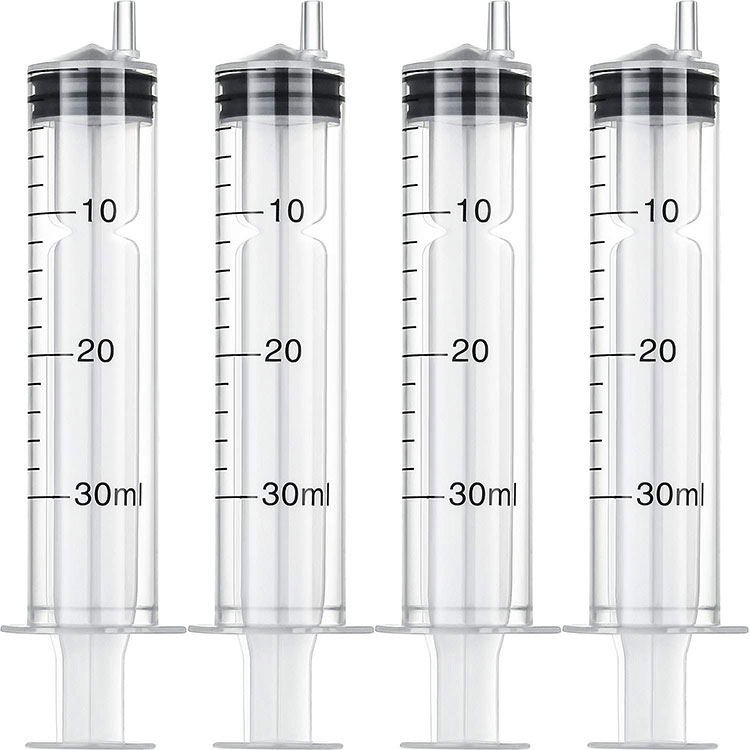Uses of plastic syringes
2023-12-01
A plastic syringe is a medical device used for injecting or withdrawing fluids in various applications, primarily in healthcare settings. Here are some key features and uses of plastic syringes:
Key Features:
1. Material: Plastic syringes are typically made from polypropylene or other medical-grade plastics. This makes them lightweight, cost-effective, and disposable.
2. Graduations: The barrel of the syringe is marked with volume graduations, allowing for accurate measurement and administration of liquids.
3. Plunger: The plunger is the movable part of the syringe that fits into the barrel. It is used to draw in or expel fluids from the syringe.
4. Luer Lock or Luer Slip: Plastic syringes can have either a Luer Lock or Luer Slip design for attaching needles or other devices securely.
5. Sterility: Disposable plastic syringes are typically sterile, ensuring that they are free from microorganisms that could cause infection.
6. Disposable: Plastic syringes are designed for single-use to prevent contamination and the spread of infections. After use, they are discarded in compliance with medical waste disposal protocols.
Common Uses:
1. Medical Injections: Plastic syringes are commonly used for administering medications, vaccines, and other fluids into the body. They are widely used in hospitals, clinics, and other healthcare settings.
2. Blood Sampling: In healthcare, plastic syringes are used for drawing blood samples from patients for diagnostic purposes.
3. Insulin Administration: Plastic syringes are frequently used for administering insulin in the management of diabetes.
4. Intravenous (IV) Medication Administration: Plastic syringes may be used to administer medications directly into the bloodstream through an intravenous line.
5. Vaccination: Plastic syringes are instrumental in vaccination programs, where precise dosages of vaccines need to be administered.
6. Pediatric Medicine: Smaller-sized plastic syringes are often used for administering medications to infants and young children.
7. Enteral Nutrition: Plastic syringes may be employed for delivering enteral nutrition or feeding solutions directly into the digestive tract.
8. Laboratory Applications: Plastic syringes are used in laboratories for precise measurement and dispensing of liquids in various scientific experiments.
9. Industrial Applications: Beyond medical use, plastic syringes are sometimes employed in industrial settings for tasks such as precise fluid dispensing in manufacturing processes.
It's important to note that while plastic syringes have many applications, proper disposal is crucial to prevent the spread of infections. Healthcare professionals follow strict guidelines for the disposal of medical waste, including used syringes, to ensure safety and hygiene. Additionally, advancements in syringe design and materials continue to enhance safety and reduce the environmental impact of these medical devices.



